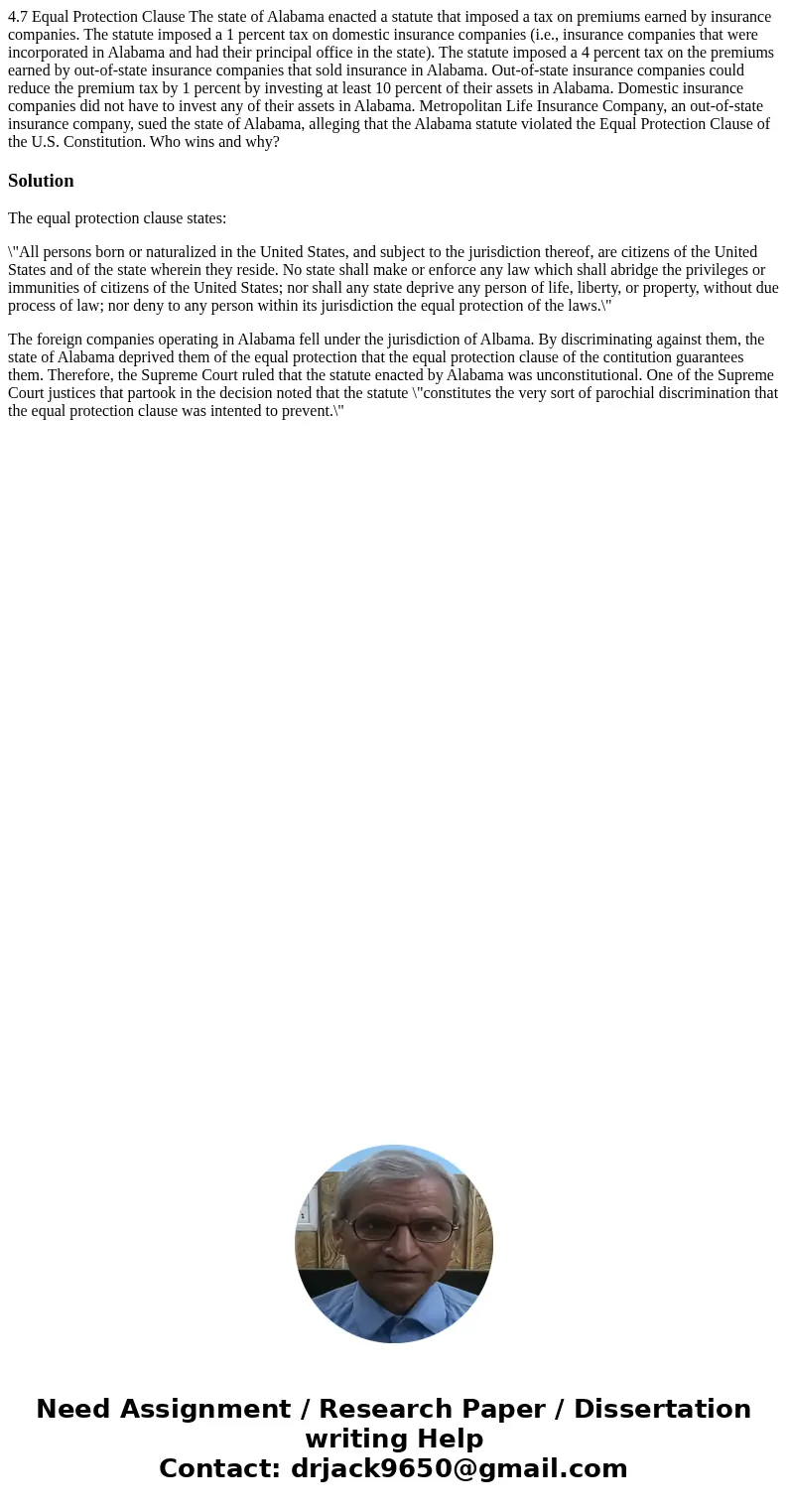47 Equal Protection Clause The state of Alabama enacted a st
4.7 Equal Protection Clause The state of Alabama enacted a statute that imposed a tax on premiums earned by insurance companies. The statute imposed a 1 percent tax on domestic insurance companies (i.e., insurance companies that were incorporated in Alabama and had their principal office in the state). The statute imposed a 4 percent tax on the premiums earned by out-of-state insurance companies that sold insurance in Alabama. Out-of-state insurance companies could reduce the premium tax by 1 percent by investing at least 10 percent of their assets in Alabama. Domestic insurance companies did not have to invest any of their assets in Alabama. Metropolitan Life Insurance Company, an out-of-state insurance company, sued the state of Alabama, alleging that the Alabama statute violated the Equal Protection Clause of the U.S. Constitution. Who wins and why?
Solution
The equal protection clause states:
\"All persons born or naturalized in the United States, and subject to the jurisdiction thereof, are citizens of the United States and of the state wherein they reside. No state shall make or enforce any law which shall abridge the privileges or immunities of citizens of the United States; nor shall any state deprive any person of life, liberty, or property, without due process of law; nor deny to any person within its jurisdiction the equal protection of the laws.\"
The foreign companies operating in Alabama fell under the jurisdiction of Albama. By discriminating against them, the state of Alabama deprived them of the equal protection that the equal protection clause of the contitution guarantees them. Therefore, the Supreme Court ruled that the statute enacted by Alabama was unconstitutional. One of the Supreme Court justices that partook in the decision noted that the statute \"constitutes the very sort of parochial discrimination that the equal protection clause was intented to prevent.\"

 Homework Sourse
Homework Sourse